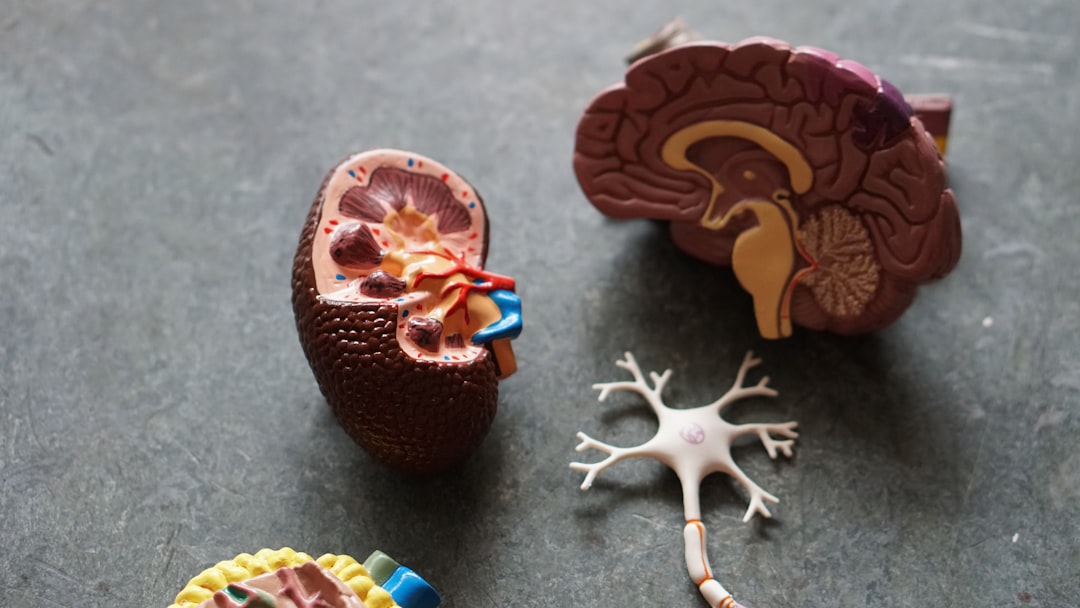Understanding Your Kidney: Function, Diseases, and Supplements

Imagine getting your kidneys out of your body. Without any filter, toxins will freely move inside you, creating other diseases.
Your kidney may just be a pair of bean-like structures, but they play major roles in protecting you from harm. They remove toxins from your blood by filtering them.
Your bladder receives these toxins and flushes them out when you urinate. Renal failure occurs when the kidneys can no longer remove waste from the blood efficiently.
What Are the Three Different Renal Failures or Kidney Diseases in Singapore?

Renal failure or kidney disease means that the kidneys cannot execute their excretion function, which causes the blood to retain nitrogenous waste materials.
There are three commonly known renal failures: acute renal failure, chronic renal failure, and electrolyte and fluid restriction. According to the National Kidney Foundation (NKF), there are five new cases of kidney failure every day in Singapore.
Acute Renal/Kidney Failure
Symptoms of kidney failure or damage that occur within a few hours or days are called acute kidney injury (AKI), also known as acute renal failure (ARF).
As a result of AKI, your kidneys have difficulty maintaining a proper fluid balance in your body. The brain, heart, and lungs can all be affected by AKI.
Hospitalized patients, those in intensive care units, and those in their 60s and 70s are all at risk of kidney failure.
Chronic Kidney Failure
Chronic kidney disease, often known as chronic kidney failure, is characterised by a steady decline in kidney function.
In your urine, your kidneys eliminate waste and extra fluids from your blood. A buildup of fluid, electrolytes, and waste in the body of someone with advanced chronic renal disease can be extremely harmful.
Fluid and Electrolyte Restrictions
In patients with acute renal failure, the effects on electrolytes reveal the importance of the kidneys in maintaining fluid and electrolyte balance in the blood.
Electrolyte levels such as potassium, sodium, magnesium, phosphorus, and calcium can all be altered and contribute to various symptoms.
Acute kidney failure can be reversed, and the electrolyte imbalances and related symptoms can be alleviated as a result.
When a patient is in renal failure, either acute or chronic, hypervolemia, hyperkalemia, hyperphosphatemia, hypocalcemia, and bicarbonate deficits are the most prevalent complications.
Kidney Disease Prevention and Treatment Tips
The good news is, you can save your kidney even before these kidney-related diseases hit them hard. Remember the old cliche (which actually works); prevention is better than cure.
1. Stay Active and in Shape
Beyond reducing your waistline, regular physical activity has numerous benefits. Chronic renal disease may be less likely with this treatment. Reduced blood pressure and improved heart function are critical in preventing kidney injury.
You don’t have to run a marathon to gain the benefits of exercise!
Exercises such as walking, running, cycling, and even dancing can all be beneficial to your health in some manner. Engage in something you enjoy that keeps you occupied. Keep at it, and you’ll see tremendous results.
2. Maintain a Healthy Weight and Diet
Obesity puts a person at greater risk for various health problems, including kidney impairment. Type 2 diabetes, heart disease, and kidney disease are all included.
A diet with reduced sodium, processed meats, and other kidney-damaging foods may help prevent kidney impairment. As a general rule, eat naturally low in salt foods, such as cauliflower, blueberries, and salmon.
3. Check Your Blood Pressure Regularly
High blood pressure can harm the kidneys. When high blood pressure is combined with other health issues such as diabetes, heart disease, or high cholesterol, the impact on your body can be severe.
The normal blood pressure reading is 120/80. Prehypertension is defined as a blood pressure reading between 139/89. At this point, lifestyle and dietary changes may help lower your blood pressure.
You may have high blood pressure if your blood pressure readings are consistently above 140/90. You should consult your doctor about regularly monitoring your blood pressure, making lifestyle changes, and possibly taking medication.
4. Maintain a Healthy Blood Sugar Level
Diabetes, a condition that causes high blood sugar, can cause kidney damage. When your body’s cells cannot use the glucose (sugar) in your blood, your kidneys must work extra hard to filter it. This can result in life-threatening damage after years of effort.
However, if you can keep your blood sugar under control, you can reduce the risk of damage. Furthermore, if the damage is detected early, your doctor can take steps to reduce or prevent further damage.
5. Be Sure to Keep Hydrated
A goal of drinking eight glasses of water a day is not magical, but it is a good one because it helps you stay hydrated. It is beneficial to your kidneys to drink water regularly.
Water aids kidney function by flushing out salt and pollutants. Chronic renal disease is also a danger that is reduced by this supplement.
What Can Novasource Renal Drink Do If You Are Undergoing Kidney Dialysis?
The last thing you want is to undergo kidney dialysis. Just in case you do, taking nutritional supplements is crucial for your health.
However, there is a tendency for patients suffering from renal failure to have trouble processing nutrients to their bodies with conventional solid food intake. This is what Novasource Renal Liquid Drink can give you.
Completely nutritional, Novasource Renal is formulated to address the needs of persons with chronic kidney disease (CKD) on dialysis, acute kidney injury (AKI), fluid limits due to CKD or AKI, or electrolyte restrictions with a calorically dense composition. Lean muscle mass is easier to maintain when there is a higher protein level in a diet.
Novasource is known to be scientifically formulated with L-arginine, the leading component for protein building. This particular amino acid is responsible for forging muscle and tissue and helps in treating wounds and tissue waste.
Five Healthy Drinks for People with Kidney Disease
A cold drink in the heat of summer or a hot drink in the depths of winter sounds great.
However, your thirst-quenching beverages can have a significant impact on your kidney health.
Don’t just drink any drinks, especially if you have a problem with your kidney. Here is the list of drinks for you to have a healthy kidney!
- Water
Drinking water is the best thing you can do for your health! There are no calories in water; it’s completely hydrating and inexpensive.
Keep your body and kidneys functioning effectively by drinking water frequently to quench your thirst in the early stages of kidney illness.
- Black Coffee
Because kidney disease progresses at a rapid pace, it may be necessary for you to limit your fluid intake because your kidneys are incapable of exchanging water with your body. You can find out how much water you should be drinking daily from your doctor and dietician.
It seems as if every year, a new study is published highlighting the health benefits of drinking coffee black. When it comes to keeping your kidneys working at their best, drinking coffee may be the best thing you can do for yourself.
If you have a renal illness, you may have fewer options for coffee drinks because not all of them are healthy. Your best bet is to drink black coffee rather than high-potassium, and high-phosphorus milked coffee or sugary drinks.
- Fresh Cranberry Juice
As a rule of thumb, always check the label before purchasing cranberry juice as a rule of thumb. Some juices have very little fruit content and are instead heavily sweetened. Organic water-based cranberry juice is the greatest for your health, so make sure you buy it.
So, how can cranberry juice assist? Preventing infection in the first place can be done by preventing germs from adhering to the walls of the kidneys.
- Green Tea
Kidney stones might be made more manageable if you drink green tea regularly. Compounds in green tea extract have been shown to reduce the formation of kidney stones.
5% of the world’s population suffers from kidney stones. Crystals and potentially painful stones can form in the urinary tract when excessively high amounts of minerals, such as calcium, build up in the system and clump together.
- Novasource Renal Liquid Drink
As mentioned, Novasource is the ultimate drink solution, especially when you are undergoing dialysis. Its minerals and vitamins are appropriate for patients with renal impairment, especially its low phosphorus and potassium content.
L-arginine supplementation may be necessary for older persons with certain medical issues. This is why Novasource is definitely in the top 5 list of drinks for renal diseases.
Remember to always consult your doctor before drinking Novasource Renal Liquid Drink.
How can Novasource Help People With Fluid and Electrolyte Restrictions?
The human body contains a variety of electrolytes by way of naturally occurring elements and compounds. They have a lot of power over the body’s internal processes.
Electrolytes include, for example, calcium, chloride, magnesium, phosphate, potassium, and sodium.
Blood, body fluids, and urine all include these compounds with food and drink, as well as vitamins.
When your body’s electrolyte concentrations are abnormally high or low, you have an electrolyte problem. For your body to function effectively, you must keep your electrolytes in balance. Vital body systems may be harmed if this does not take place.
Examples of these electrolyte restricting diseases are the following:
- Hypercalcemia and Hypocalcemia
If your blood calcium levels are abnormally high, you are likely to have hypercalcemia, a disease. Organs, cells, muscles, and nerves require calcium to function properly. Blood clotting and bone health depend on it as well.
On the other hand, if you don’t get enough calcium, you have hypocalcemia. Children who do not obtain enough calcium in their diets may not reach their full height as adults.
- Hyperchloremia and Hypochloremia
An electrolyte imbalance is known as hyperchloremia results from an excess of chloride in the blood.
As a vital electrolyte, chloride aids in regulating fluids, regulating pH levels in the body, and conveying electrical signals in the brain and spinal cord. A blood chloride level of 98-107 milliequivalents of chloride per liter (mEq/L) is considered normal in people.
On the other hand, You can get hypochloremia if you have a low chloride level in your body.
- Hypermagnesemia and Hypomagnesemia
Magnesium is a mineral found in abundance in the human body. Bones are the primary storage location for it. Magnesium is present in a very small proportion of your blood.
More than 300 metabolic activities in your body rely on magnesium. These reactions have a significant impact on a variety of vital bodily functions.
- Hyperphosphatemia and Hypophosphatemia
- Hyperkalemia and Hypokalemia
The kidneys, bones, and intestines all play a role in regulating phosphate levels in the human body. Phosphate is required for many different processes and has a close relationship with calcium.
Potassium plays a critical role in the regulation of cardiac function. It also aids in the health of the nervous system and the muscles.
Higher-than-normal concentrations of potassium can result in hyperkalemia. You could die if you don’t have it diagnosed and treated. Hypokalemia is a condition in which potassium levels are abnormally low.
- Hypernatremia and Hyponatremia
Sodium is an essential nutrient for the body’s normal operation and the maintenance of fluid equilibrium. Nerve and muscle contraction are also regulated by it.
An excess of sodium in the blood is known as hypernatremia. Hyponatremia is caused by a lack of sodium in the blood.
Conclusion
Finally, these fluid restrictions can be summed up by two: the excess and the malabsorption of these elements in our blood. With a very sensitive food diet required for people with fluid restrictions, Novasource balances these vitamins and minerals. It’s also used for tube feeding, making it a versatile food supplement.
It is critical to your overall health and well-being to keep your kidneys in good working condition. Your body’s ability to effectively filter and eliminate waste and generate hormones is largely dependent on the health of your kidneys, so taking care of them is essential.






